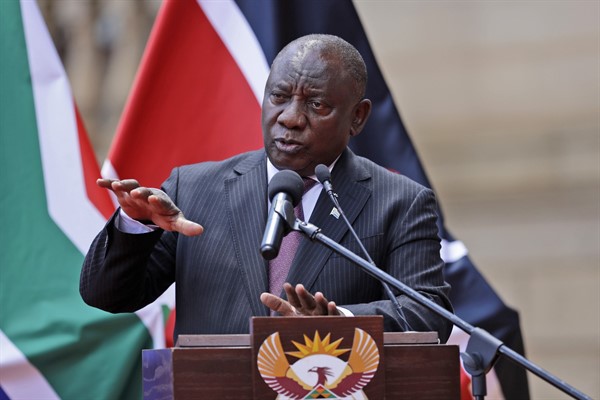If anyone was hoping for a post-pandemic renewal of international cooperation in a world still feeling the aftershocks from Brexit, Donald Trump’s presidency, trade wars and global supply chain disruptions, they would likely be disappointed today. International relations in 2020 were driven primarily by the politics of aid and mask diplomacy. The second year of the coronavirus pandemic has been all about vaccines, geopolitical competition and travel restrictions.
In a July edition of my Africa Watch newsletter, I noted that the rhetoric of renewed multilateralism heard at global summits and other international fora at the onset of the pandemic ultimately gave way to provincialism on the part of wealthier, more industrialized countries—primarily, but not exclusively, in the West. That development, particularly in its manifestation as vaccine nationalism, has disproportionately affected Africans, only 7 percent of whom are fully vaccinated. According to the World Health Organization, or WHO, only 20 African countries have vaccinated at least 10 percent of their population.
As if the continent’s low vaccination rates weren’t enough of a burden, the global reaction to the new omicron coronavirus variant has been every bit as predictable as it has been deplorable. When the WHO announced late last month that researchers in South Africa and Botswana had identified the new COVID-19 variant, no sooner had the ink dried on the global health body’s declaration than a wave of travel bans were slapped on seven southern African countries, including South Africa, by the U.S., the U.K. and the European Union, as well as Canada, Israel, Australia, India, the United Arab Emirates and several other countries. As noted by Tulio de Oliveira, the researcher who led the team of South African scientists that identified the new variant, blocking commercial flights from South Africa also meant blocking the country’s means of importing the chemicals needed to help him and his fellow researchers keep track of omicron’s spread.

